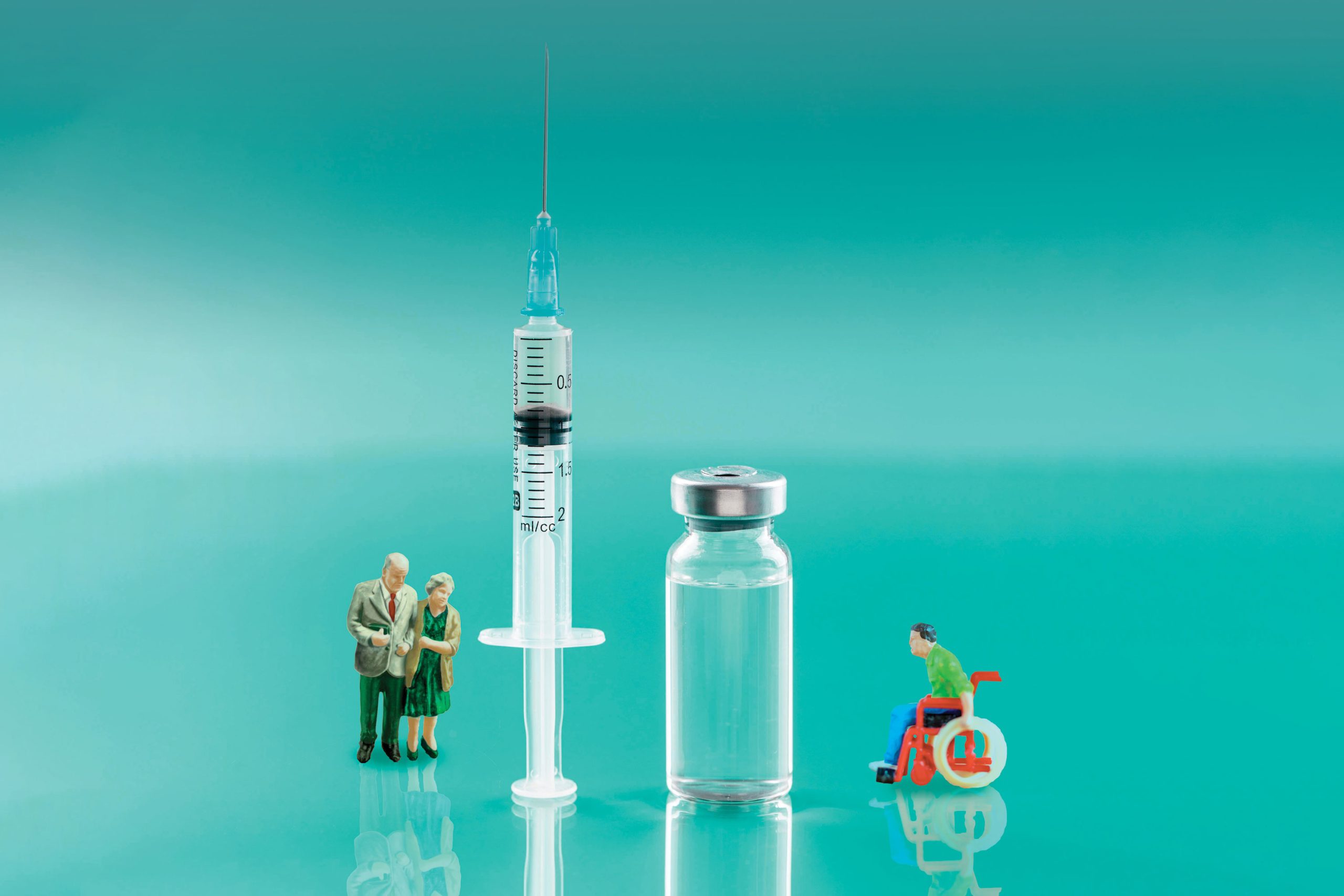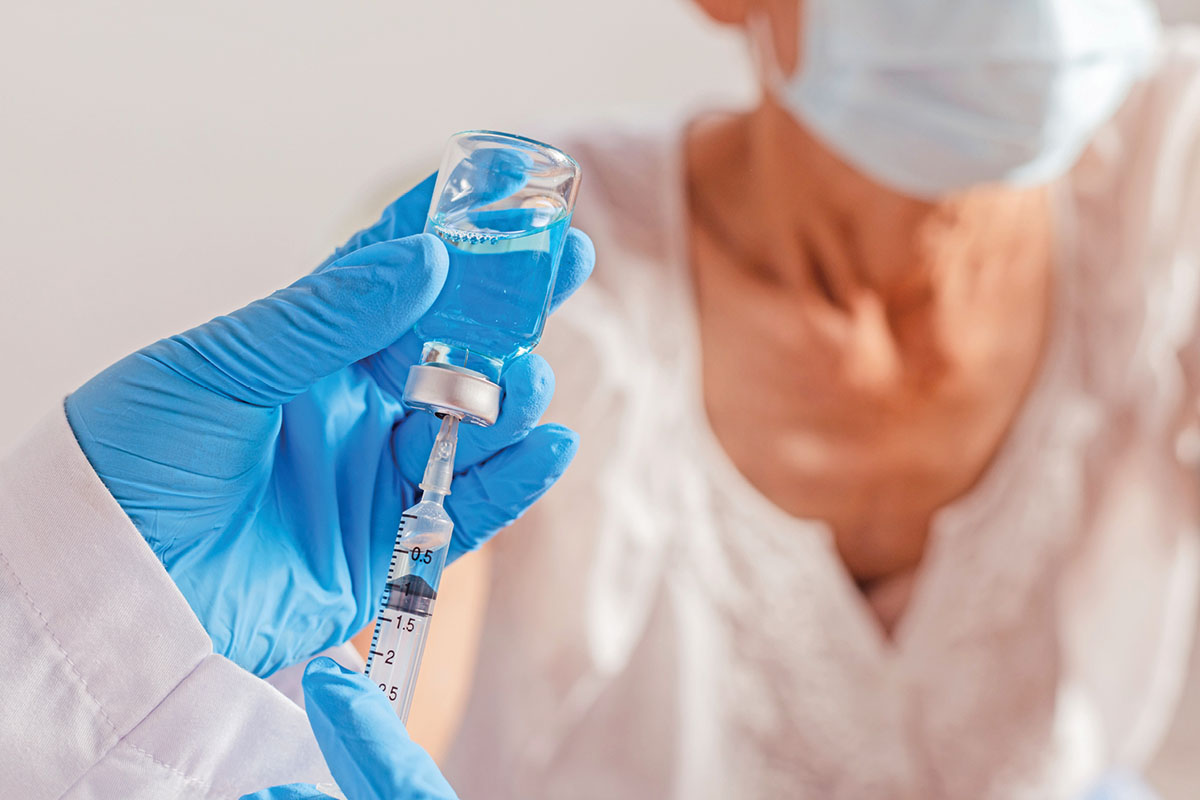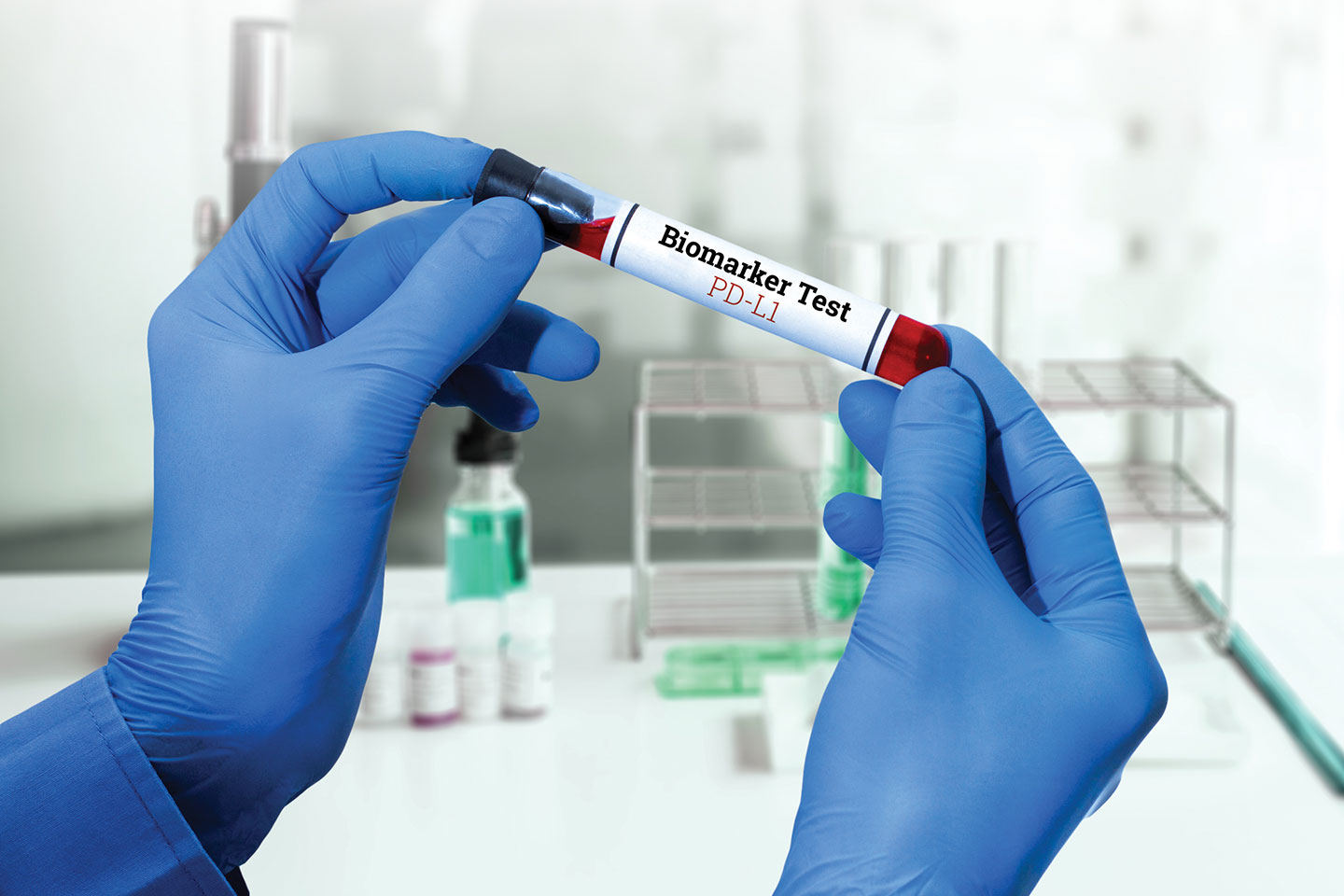
Issue 42 / May 2022
SCIENCE OF LIFE
Medical Students Demonstrate Efficacy of
COVID-19 Vaccines in Multiple Immunocompromised
Patient Groups

Led by faculty mentors, they performed a meta-analysis that was published in a prestigious medical journal.
The transmission and mutation of the SARS-CoV-2 virus has continued to fuel the ongoing COVID-19 pandemic globally. By February 2022, more than 400 million have had confirmed COVID-19 and more than five million have died worldwide. Trials and ongoing studies have sought to evaluate the efficacy and safety of vaccines developed to protect the global population from the worst of COVID-19’s side effects and symptoms. High vaccine efficacy against symptomatic laboratory confirmed infections were reported, with protection rates of over 90% after two doses of most vaccines available.
The protection afforded by vaccines is particularly crucial in vulnerable populations of patients such as those with compromised immune system, who face a higher risk of severe COVID-19 infection and mortality. A group of medical students from NUS Yong Loo Lin School of Medicine have now completed a systematic review and meta-analysis of the efficacy of various COVID-19 vaccines in multiple immunocompromised patient groups.
Through the review of 82 observational studies, the students compared the efficacy of COVID-19 vaccines between immunocompromised and immunocompetent people. They demonstrated that immunocompromised patients produced significantly less antibodies after COVID-19 vaccination as compared to their immunocompetent counterparts. Seroconversion, the process of making significant levels of antibodies after infection or vaccination which allows the body to protect itself, was especially poor in organ transplant recipients, with only a third achieving seroconversion after two doses.
![]()
More than
400
million
have confirmed
COVID-19 and
more than
5
million
have died from
COVID-19
worldwide by
February 2022
A third (booster) dose was able to elicit a significant antibody response in most patients with cancers and autoimmune diseases, but was of variable effectiveness in organ transplant recipients. Among the immunocompromised groups studied, antibody levels were also lower than in immunocompetent controls.

Most studies included in this meta-analysis employed mRNA vaccines (Moderna, mRNA-1273 and Pfizer-BioNTech, BNT162b2) and no conclusive differences in response were found compared to inactivated or viral vector vaccines. As the base of evidence grows, the effect of regimens such as the enhanced primary series employed in Singapore and booster doses of COVID-19 vaccines may be studied. As more evidence on various types of vaccines emerge, it would be possible to study if vaccination with a specific type of vaccine confers greater protection.
The students’ paper was published by The BMJ, one of the foremost peer-reviewed medical journals available. This recognition from veteran researchers in their field was a significant achievement for the students.
The team of medical students behind the publication, third-year student Wong Shi Yin, fourth-year student Ainsley Ryan Lee and fifth-year students Teo Chong Boon and Benjamin Tan expressed their gratitude for the support from their team of mentors led by Assistant Professor Raghav Sundar and Dr Soon Yu Yang.
“We would like to thank Asst Prof Sundar and Dr Soon for their dedication guiding us through this journey. They have been empowering mentors, allowing us to grow as researchers and making this possible.”




